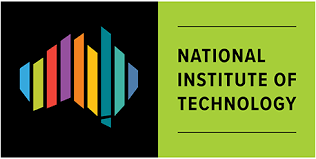The Diploma of Information Technology (Advanced Networking) at the National Institute of Technology is designed to provide you with training in the skills and knowledge required to become a computer networking professional.

The Diploma of Information Technology (Advanced Networking) at the National Institute of Technology is designed to provide you with training in the skills and knowledge required to become a computer networking professional.
You will be exposed to popular technologies in computer networking such as Windows and Linux operating systems; Windows servers; networking equipment including routers, switches, and wireless access points; Virtualisation hypervisors VMware and Hyper-V; and Microsoft Azure platform.
Course Overview
This course is designed to provide you with training in the skills and knowledge required to become a computer networking professional. The course will provide you with training in several computer networking skills such as:
installing and configuring network operating systems (Windows and Linux)
installing, configuring and managing complex computer networks
installing and configuring an internet gateway
designing, building and testing network servers
managing network security
installing, configuring and managing virtual computing environments
You will be provided with access to Cisco Networking Academy (NetAcad) for an opportunity to prepare for Cisco Certified Network Associate (CCNA).
Course Structure
To complete ICT50220 – Diploma of Information Technology (Advanced Networking), 20 units must be satisfactorily completed.
Many units in this course are delivered and assessed in a cluster. A cluster is a group of two or more units of competency that are delivered and assessed together.
Clustering-related units in this course help you learn and perform assessment tasks as expected in an actual workplace.
IP, ethics and privacy in ICT
ICTICT451 Comply with IP, ethics and privacy policies in ICT environments
ICTICT532 Apply IP, ethics and privacy policies in ICT environments
ICT Support
ICTSAS527 Manage client problems
ICTSAS445 Configure and troubleshoot operating system software
ICTSAS518 Install and upgrade operating systems
ICTNWK427 Configure desktop environments
Enterprise Networking
ICTICT435 Create technical documentation
ICTNWK562 Configure internet gateways
ICTNWK529 Install and manage complex ICT networks
ICTSAS530 Use Network tools
Network Security
ICTNWK546 Manage network security
BSBXCS402 Promote workplace cyber security awareness and best practices
ICTICT517 Match ICT needs with the strategic direction of the organisation
Servers And Virtualisation
ICTNWK557 Configure and manage advanced virtual computing environments
ICTNWK559 Install an enterprise virtual computing environment
ICTNWK434 Identify and implement industry standard virtualisation technologies
ICTNWK540 Design, build and test network servers
ICTNWK536 Plan, implement and test enterprise communication solutions
Leadership
BSBXTW401 Lead and facilitate a team
Develop Concepts
BSBCRT512 Originate and develop concepts
Note:
Course structure, units and content are subject to change during the delivery period due to a change in legislative requirements or NIT’s course review process.
Training delivery and assessments will follow a holistic approach for units delivered as part of a cluster. You will be required to complete all the assessment requirements of a cluster to advance in the course.
Failing to complete the clustered assessments will require re-enrolment in an entire cluster (all units that form part of the cluster) with applicable fees.
Entry Requirements
Age:
Domestic students must be 16 years or above at the time of application to study at NIT.
International students must be 18 years or above before the commencement of study at NIT.
Academic
To check the academic entry requirements, refer to the Academic Entry Requirements web page.
English Language Proficiency
Overall IELTS band score of 5.5, with no band score less than 5.0; or
An equivalent score in another English Language Proficiency Test acceptable by National Institute of Technology; or
An alternative English language proficiency evidence that is acceptable by National Institute of Technology.
Career Prospects
Job roles and titles vary across different industry sectors. Possible job titles relevant to this qualification include:
Network Administrator
Network Services Administrator
Network Support Specialist
Network Operations Analyst
The demand for computer networking professionals grew very strongly over the past 5 years and is expected to grow very strongly over the next five years.
The number of computer networking professionals is likely to increase from 49,100 in 2020 to 64,000 by 2025*. Job Outlook is an initiative of the Australian Government National Skills Commission.
Job Outlook provides information about Australian careers, labour market trends and employment projections. Accessed on 28 Oct 2021.
More Information
Resource Requirements
All students studying at NIT are required to bring their computers (laptops or tablets) with a current web browser, email address, and the software capability to submit work in Microsoft Office formats such as .docx, .xlsx, .pptx and .pdf.
Students also must have access to a high-speed internet connection – broadband wired or wireless (5G/4G/LTE) – Minimum bandwidth requirement is 5/3 Mbps (download/upload speed).
Students are also required to bring their own notebooks, stationery and USB storage media. NIT may lend laptops to students for on-campus use only based on a first-come-first-served basis.
Students enrolled in ICT courses are expected to have an additional external SSD storage media drive with a minimum of 100 GB storage space for virtualisation units.
Delivery Mode:
Our focus is to help you develop the skills and knowledge you need to get a job or advance your career. Our learning outcomes are industry-focused to prepare our students for the highly competitive business world.
Our vision is to be continually recognised as a leading institute, acknowledged for its excellence by students, partners, and the wider community.
“Our mission is to enable students to realise their full
potential by empowering them through innovative education and industry-focused
training in a conducive environment.”
Helping students meet their education and career goals; Creating learning outcomes that are industry-focused; Being innovative and technology-oriented; and Creating a conducive and inclusive learning environment
The National Institute of Technology’s education and training decisions are governed by a very experienced Education and Training Advisory Board (ETAB). The board diligently ensures that NIT’s education and training are in line with the industry requirements and NIT’s vision.
© 2025 coursetakers.com All Rights Reserved. Terms and Conditions of use | Privacy Policy